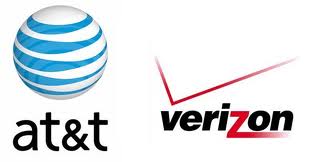 While AT&T trumpets vague plans to upgrade up to 100 cities with gigabit fiber to the home service, some AT&T GigaPower U-verse customers in Austin wish they could just consistently get the 300Mbps service they were promised.
While AT&T trumpets vague plans to upgrade up to 100 cities with gigabit fiber to the home service, some AT&T GigaPower U-verse customers in Austin wish they could just consistently get the 300Mbps service they were promised.
More than a few customers are unhappy with the service they are getting and have been vocal on an AT&T forum with complaints about service interruptions and speed issues.
Among the complaints:
Unresponsive Internet
A common complaint for U-verse GigaPower customers is a suddenly unresponsive Internet.
“Since upgrading to GigaPower often times my browser (same issue with Firefox, Safari, Chrome) will not always load or display web sites. Same thing happens with Tuba and/or Youtube,” writes bcslas. “Often it will fail to load and sometimes I see timeout errors, yet at other times the site loads fine. […] Usually a refresh or 30 second wait to refresh will fix the issue – but it is constant.”
 “I upgraded to GigaPower last December and since then, the service started getting disconnected multiple times per week,” wrote ybasha. “Sometimes it lasts a few minutes and sometimes longer. When that happens, I lose Internet and TV service. I called technical support multiple times. They sent technicians twice. One of them swapped the modem, but I still have the problem.”
“I upgraded to GigaPower last December and since then, the service started getting disconnected multiple times per week,” wrote ybasha. “Sometimes it lasts a few minutes and sometimes longer. When that happens, I lose Internet and TV service. I called technical support multiple times. They sent technicians twice. One of them swapped the modem, but I still have the problem.”
“When I do a Google search from Chrome, it hangs there until it eventually times out and then I have to reload the page, after which the search results appear,” writes bustedmagnet. “Another example is in Gmail, sometimes the initial page is very slow to load, but it hangs forever when trying to open individual emails. Again, multiple page refreshes seem to fix this.”
It turns out that IPV6, enabled by default, is unreliable when using AT&T GigaPower. Customers have usually found relief downgrading to IPV4-only support or switching to Google’s IPV6 DNS servers:
- 2001:4860:4860::8888
- 2001:4860:4860::8844
Slow Speeds
 AT&T GigaPower is supposed to offer 300/300Mbps service today with an upgrade to gigabit Internet forthcoming later this year. But not every customer comes close to getting those speeds. GigaOM writer Stacey Higginbotham found some customers cannot reliably get more than 75Mbps:
AT&T GigaPower is supposed to offer 300/300Mbps service today with an upgrade to gigabit Internet forthcoming later this year. But not every customer comes close to getting those speeds. GigaOM writer Stacey Higginbotham found some customers cannot reliably get more than 75Mbps:
Yesterday I was at my brother in-law’s house where he is a GigaPower subscriber, his computer was registering speeds of 70 Mbps down and 50 Mbps up using Ookla on a wired connection. That’s fast, but not 300 Mbps fast and certainly not a gig. My brother and sister-in-law are not speed freaks like myself, but they were disappointed with the GigaPower product.
To me, what was most troubling is that they couldn’t tell me if they had signed up for AT&T’s service plan that offers them a lower price on internet service if the customer lets AT&T use your surfing habits to offer ads. They signed up for a bundle, they said, that was cheaper than their previous service.
“Upload speeds are consistently slower than download speeds,” complained egardiner. “Using att.com/speedtest, I can consistently achieve 320Mbps down, but typically never more than ~180Mbps up. The CrashPlan backup service is glacially slow, never achieving more than 3kbps when sending data to CrashPlan’s cloud servers. CrashPlan’s techs have suggested that there are no issues on my client PC side nor on their server’s side, and they’ve asked if U-verse GigaPower is throttling backup traffic.”
Broadband Reports’ readers report Usenet newsgroup downloads appear to be heavily throttled over the GigaPower fiber network as well, with speeds dropping well below 100Mbps.
It turns out GigaPower speeds won’t help you with a good Netflix viewing experience either.
“I signed up for the U-Verse GigaPower service and the overall speeds seem to be faster,” writes mstang1988. “The bad, some of regularly used services are not performing. For example, Netflix. On Grande [a competing provider] I was always running at HD. With U-verse I’m seeming giant blocks of blur. I’m fixing to cancel.”
 Kim R. in Cedar Falls, Tex. isn’t happy either:
Kim R. in Cedar Falls, Tex. isn’t happy either:
AT&T GigaPower was good for the first 20-30 days, then they made a change and my upload speed is 35-78 on average with a lot of latency and my VoIP phones cannot send or receive calls. Multiple techs were dispatched on Friday and they were at my home for 7+ hours. They eliminated my home as being the source of the issue and other friends in the neighborhood are having the same issues.
We have been in this mode for 4 days now and I have spend most of today working with tech support with no luck. Customer service was no help either when I asked them to suspend billing until they got it working again, of course there answer was “we can’t do that”.
I will loose another day of service when the tech(s) come out again tomorrow. Beware of AT&T’s GigaPower, it’s a myth so far and their techs ride on unicorns and most have no idea about any networking.



 Subscribe
Subscribe AT&T and Verizon Wireless are thrilled customers are moving away from subsidized smartphones, because both are raking in extra revenue they are not returning to customers with lower plan prices.
AT&T and Verizon Wireless are thrilled customers are moving away from subsidized smartphones, because both are raking in extra revenue they are not returning to customers with lower plan prices. Verizon Wireless is a bigger taker.
Verizon Wireless is a bigger taker. AT&T has usage capped its heavily promoted U-verse GigaPower fiber to the home service at 1TB a month, according to
AT&T has usage capped its heavily promoted U-verse GigaPower fiber to the home service at 1TB a month, according to  The New Jersey Board of Public Utilities today
The New Jersey Board of Public Utilities today  While AT&T trumpets vague plans to upgrade up to 100 cities with gigabit fiber to the home service, some AT&T GigaPower U-verse customers in Austin wish they could just consistently get the 300Mbps service they were promised.
While AT&T trumpets vague plans to upgrade up to 100 cities with gigabit fiber to the home service, some AT&T GigaPower U-verse customers in Austin wish they could just consistently get the 300Mbps service they were promised. “I upgraded to GigaPower last December and since then, the service started getting disconnected multiple times per week,” wrote ybasha. “Sometimes it lasts a few minutes and sometimes longer. When that happens, I lose Internet and TV service. I called technical support multiple times. They sent technicians twice. One of them swapped the modem, but I still have the problem.”
“I upgraded to GigaPower last December and since then, the service started getting disconnected multiple times per week,” wrote ybasha. “Sometimes it lasts a few minutes and sometimes longer. When that happens, I lose Internet and TV service. I called technical support multiple times. They sent technicians twice. One of them swapped the modem, but I still have the problem.” AT&T GigaPower is supposed to offer 300/300Mbps service today with an upgrade to gigabit Internet forthcoming later this year. But not every customer comes close to getting those speeds.
AT&T GigaPower is supposed to offer 300/300Mbps service today with an upgrade to gigabit Internet forthcoming later this year. But not every customer comes close to getting those speeds.  Kim R. in Cedar Falls, Tex. isn’t happy either:
Kim R. in Cedar Falls, Tex. isn’t happy either: